Books to Build a Perfume Library
Newsletter #12: a starter pack of books on scent and olfaction
“The rankest compound of villainous smell that ever offended nostril.”
We can safely say that this line from The Merry Wives of Windsor is the greatest sentence about scent that has probably ever been written. It shows with Shakespearean brilliance that the written word and the world of scent are art forms that perhaps shine best when using one another as a lens.
As a thread in the fabric of human life, scent and fragrance have been referenced in books as long as there have been books. But books about scent, at least in English, are a rarer find. There’s the big one, the one you immediately think of, but that’s a book about violence that is masquerading as a book about perfume so it doesn’t count. That novel was released in 1985, and from then to now there has been a trickle of perfume books that in the past ten years have turned into a stream. It has now become quite possible to build yourself a respectable English language library of books on perfume.
My own collection of perfume books grows more each year. I keep them at eye level on the overstuffed bookshelves in my living room where they can bring me the most joy. A book about perfume can be educational, entertaining, or evocative - it depends on the book’s purpose and the skill of its author. In this newsletter we’ll talk about some of the books in my collection and what approach they take to the world of perfume so that you can start to build your own library.
This list is not exhaustive, and we will hopefully return to this topic as the world of fragrance books gets wider and wider. If you buy any of these books, I encourage you to do as I do and spray some perfume on a blotter to use as a bookmark. Smell as you read, and read as you smell - that, my friends, is the only way to live.
The Big Book of Perfume (Le Collectif Nez)
So you’ve been dabbling in the world of perfume for a while now. Maybe you wanted to buy a new fragrance and innocently googled it before falling down the Fragrantica-Parfumo-Perfumetok rabbit hole. You find yourself searching for fragrance collection videos and perfume hauls in your free time. People keep throwing out words like sillage and accord and drydown, and you don’t really understand much but you know that you want to know more.
If you are this person, The Big Book of Perfume is the book I would recommend for you. It’s published by Nez, the scent dedicated magazine imprinted that is supported by the big fragrance oil houses like Symrise and Firmenich. This means you truly won’t find a publisher more reflective of the inner workings of the perfume industry.
The level of access Nez has, though their work must always be read with a sceptical eye, is unparalleled. The foreword of the Big Book is by Jean-Claude Ellena. The list of contributors is exhaustively, reassuringly French. If you’re looking authoritative, you’ve found it.
Larger than a paperback but smaller than a coffee table book, the Big Book takes a whistle stop tour past literally every concept, theme, material and production process in the world of perfume. It has a brief history of scent, a scientific breakdown of olfaction, a forensic examination of how perfume is produced and sold, and overviews of our current internet-driven perfume culture. The chapters are succinct and written with razor sharp clarity, and considerable effort has gone into the graphics and illustrations.
The benefits of being an industry-driven book is that there are descriptions of natural material extraction and interviews with perfumers that you won’t find in any other book on perfume. This is an important lens into the world of fragrance, but not the only one - the Book is an incredible diving board into the world of perfume, but what it does best is prime you for the weird shit - the deep water.
The Book feels, in the best possible way, like a Perfumery 101 course at liberal arts university. There are very few books on perfume that I think are appropriate to give to someone who knows nothing about the world of fragrance - this is one of them. Nez produces a lot of incredible fragrance publications, but this is the place to start.
Perfume Legends: French Feminine Fragrances (Michael Edwards)
Every perfume, from the highest of the high end to the five dollar drugstore dupe, has a story. It is art in the same way that a painting in the Louvre and an Etsy poster print of Che Guevara are both art - whether the art is good or not sometimes isn’t the story that it’s trying to tell you.
When I write about a perfume, what I always need to do first is find the story. Sometimes those stories are personal, and sometimes they’re factual, but for the grand dames of perfume - the scents that have helped shape the world - those stories can be larger than any one person’s life.
Perfume Legends is a collection of these stories - the big ones, the earth shaking ones - that form around the shape of perfume. It’s almost what I would call a kind of fragrance anthropology, examining the wider cultural movements behind the creation of perfume and then its subsequent impacts. Through focusing on a set of French perfumes in chronological order of their creation, Edwards weaves a tapestry that tells the story of modern perfumery. Through the chapters you can see how fragrance culture moves and changes through the impact of social, political, and industry specific events since the invention of modern perfumery.
Edwards’ research is comprehensive and illuminating - where he can he interviews perfumers and industry insiders to get almost an oral history behind the creation and distribution of scents like Opium, Poison, and Angel. The book is factual but is interested in storytelling more than anything else, combining structural components and industry expertise of the science of perfumery seamlessly with the artistic and cultural components of the art form. Perfume Legends takes effort to focus on often overlooked elements of perfumery, such as bottle design and creation and perfume advertising.
The enormous, heavy weight of Perfume Legends when you break it open is a reassuring comfort in your hands. There are very few books that feel so clearly like a labour of love as this one - it is Edwards’ passion for perfume as an art form that shines through most clearly. You will get halfway through this book and then start to slow down reading it - not because the quality lessens, but because you find yourself not wanting it to end.
Nose Dive: A Field Guide to the World's Smells (Harold McGee)
I’m pretty easy-going when it comes to opinions on perfume that differ to mine. Fragrance is a broad church and I think it’s brilliant that there enough smells in the world that the person who loves the scent of bananas (which I loathe) can be happy, while at the same time I can take a break from my desk at work and go to the print room to get a comforting whiff of the smell of the permanent markers. Each to their own.
The one opinion that does make my eye twitch is when people say that they want a perfume that is ‘clean’ or ‘chemical-free’. My response to this, usually said alone in my living room to the unfeeling surface of my computer, is ‘don’t they know that everything is chemicals?’
If you want to know how or why the vanillin manufactured in a lab and the vanillin that comes from the seeds of the vanilla pod are, indeed, the same chemical, than Nose Dive is the book for you.
With a nineteenth-century naturalist’s sheer passion for his topic, McGee takes a scientific approach to exploring and understanding why things smell the way that they do. The book has a wider lens than perfume - the connection between olfaction and taste is deeply explored, and there are some parts of the book that will deter people because it begins to read like a science textbook - but everything is chemicals, so it is all perfume in the end.
The wonder of smell as our most primal scent means that you can’t really write about it without turning to the sensual. By ‘most primal’ I mean ‘least intellectualised’ and also ‘most emotive’. Scent is the sense for which we have the smallest vocabulary, which is why I think it can be so impactful when people do hit on that vein of magic when a smell is described perfectly well. It connects two threads in your mind you hadn’t considered before. Take McGee’s lush description of ambergris:
"Ambergris is the strangest of all fragrance materials, a startling demonstration of Hero Carbon's protean permutability. It begins as a stinking obstruction in the rectum of ocean-cruising sperm whales, and ends years later as sublime seashore jetsam, the finest emitting a smell like no other, with facets of the ocean and soil, exotic woods, incense, and tobacco."
Nose Dive is at its most charming when you can sense that McGee, too, is shocked by what he is using his nose to uncover. These moments are needed, as the book is a nearly 700 page scientifically structured forensic examination.
The driving force of Nose Dive is a man who is trying to understand his own senses. And that is the touchstone that fuses threas as disparate as the creation of the universe to quotations of Paradise Lost to theories on why, precisely, human poop smells the way that it does. Don’t hesitate: jump on in.
Perfumes: The Guide and Perfumes: The Guide (2018) (Luca Turin and Tania Sanchez)
Perfumes: The Guide is the book everybody recommends when they talk about perfume criticism, and that is because it’s the best one. The first Guide is a monumental force of a book. Published in 2008, it details the broad strokes of the perfume landscape at the time and then goes on to review thousands of perfumes, some with scathing one liners and some with in depth stories. The 2018 Guide covers releases across a ten year period, with a focus on niche perfume.
The ripples the original Guide sent through the world of perfumery can’t be understated. Imagine if, a hundred years after the Gutenberg press was invented, someone sat down to document every book of note in circulation and tell you which ones were good and which ones sucked. Everyone’s got an opinion on perfume: The Guide turns opinion into a kind of olfactory literary criticism. The late Hilary Mantel, who was a fanatic lover of perfume, summarised The Guide thus:
'I've long wished perfumery to be taken seriously as an art, and for scent critics to be as fierce as opera critics, and for the wearers of certain "fragrances" to be hissed in public, while others are cheered. This year has brought Perfumes: The Guide by Luca Turin and Tania Sanchez, which I breathed in, rather than read, in one delighted gulp.'
In many ways this is the only real book of perfume criticism. The more books on perfume you read, the more you come to realise that there’s an odd sort of fear from authors to say anything negative. Most other perfume authors will only write about the perfumes they like to avoid this, which makes Turin and Sanchez’s two books even more refreshing: sometimes it’s nice to read someone being really, really mean about a bad perfume.
And The Guide is mean when it feels it needs to be. Reading it sometimes feels like you’re two margaritas deep at a dinner with your friends when everyone feels loose enough to be vicious. You’re in safe enough company to say the mean thing and then laugh about it together.
This is warranted, because the deeper truth that The Guide acknowledges is that perfume is entirely subjective. There is so much power in embracing this fact. What smells brilliant to me can smell terrible to you, and once the reader overcomes the idea that The Guide is trying to tell you what you should like (it is not), then you can really sit back and enjoy it. I get almost as much joy out of passionately disagreeing with some of the perfume ratings in the book as I do nodding along when my personal favourites get a rave.
When I first read the guide I never really thought of it as brave. But I do now - and doubly so because it sadly did not energise the industry into truly embracing perfume criticism as an indicator of maturity for the art form. But I live in hope. And until then I have both of my Guides and refer to them often for their wit, intelligence, and some damn good writing on perfume.
The Perfume Companion: The Definitive Guide to Choosing Your Next Scent (Sarah McCartney and Samantha Scriven)
The rarest types of perfume books are books written by perfumers. Olfaction, I suppose, is like when they send the drillers up in the spaceship in Armageddon: it’s easier to teach an author about perfume than to teach a perfumer how to write.
Luckily, Sarah McCartney is pretty good at both. Now the independent perfumer behind the brand 4160 Tuesdays, she was the head writer for Lush for over a decade. You would expect someone who entered the world of perfume through the lens of writing to be good at describing scent, and she is - it is McCartney’s wit and easy expertise that is the major draw of The Perfume Companion.
Do not, however, come to this book to gain insight on the modern perfume market. The conceit of the book is to be a guide for the kind of person looking for a signature scent - there’s a feeling you get about halfway through that the authors intend for you to lug the hard copy around with you to the store and consult with the authors before you sniff. As such, the book is structured rather subjectively into fragrance categories and, frustratingly, is filled with only scents that the two authors really love.
While it is enjoyable to read reviews of perfumes about which the authors are passionate, the narrow lens of this focus feels frustrating to scent lovers and misleading to the layperson. For example, almost all the scents in the book are feminine marketed - whilst I’m not going to raise a protest about the lack of Versace Eros reviews in the world, it does raise the question as to whether this guide can really be called definitive.
The book is well detailed, the graphics are gorgeous, and co-author Scriven has been a fragrance blogger since the internet’s first perfume boom so she is able to meet McCartney’s enthusiasm in equal measure.
The reviews in the Companion are clever and make for good reading. It’s a worthwhile addition to anyone’s perfume library, but sometimes when I read it I do wish it had few more fangs.
1001 Perfumes: The Guide (Daniel Barros)
If I could describe 1001 Perfumes in one word, it would be factual. 1001 Perfumes is the first English language collection from Barros that consolidates previous Guides he has written in Portuguese.
Like it says on the label it contains descriptions of a thousand perfumes, split into male and female categories which are further split into designer and niche. The descriptions resemble tweets - mostly consisting of a few sentences, though some run longer - with accompanying hash tag descriptors at the bottom of each perfume summary. It doesn’t make for the prettiest layout, but it gets the job done.
The Guide section is fine and serviceable, but the true value of the book is in the padding. The book starts with a series of essays and knowledge articles on perfume, hearkening back to Barros’ time as a Fragrantica columnist. His brief biography and career summary of perfumers, including their most notable compositions, is the page to bookmark. The end of book contains a series of top ten lists, much like Turin and Sanchez’s Guide, that can serve the newcomer or the curious as makeshift olfactory shopping list.
I’ve included 1001 Perfumes here mainly because it is the most current Guide-style book in publication (it was released in 2024). It includes a lot of modern and trending scents that other books can’t expect to keep up with, given the breathless pace at which perfumes are currently released. But there’s always something delightful about the zing you feel down your spine when you come across a review of a scent you’ve smelled before.
I’m an iconoclast when it comes to books and enjoy writing across my copy of 1001 Perfumes, giving my own reviews en bref. ‘Delightful - punchy’ next to Oud for Greatness; ‘a waste of materials and the sniffer’s time’ against Miss Dior Rose and Roses. This exercise raised my appreciation of 1001 Perfumes, because a factual book is always more fun when you pick fights with it.
“The Perfect Scent: A Year Inside the Perfume Industry in Paris and New York” (Chandler Burr)
If, like me, you enjoy a five thousand word feature article like the kind that used to populate the pages of Vogue and Harper’s Bazaar before print magazines went on life support, you will love The Perfect Scent.
The book began as an article in the New Yorker called The Scent of the Nile. The article and subsequent section of the book tracks the creation of Un Jardin Sur Le Nil by Jean-Claude Ellena for Hermes. The other half of the book contrasts this with the creation of Sarah Jessica Parker’s Lovely, one of the great celebrity scents of the 2000’s. The surrounding book is almost a picaresque through the world of perfume in the late aughts, before niche really gained its steam and the edges of the world of fragrance still seemed known.
The book attempts to find something profound in the differences between Un Jardin and Lovely’s creation, with a lot of discussion of just how special Hermes is. This is ironic, given that if you smell the two perfumes side by side it is clear which one is bottled brilliance and which one is a dud. There’s a lot of observation of the absurdities of the luxury world too, which always feel current.
Burr, who doesn’t write about perfume very often anymore (at least not publicly), is a bit of an oddity in the world of fragrance writers. Along with Gabe Oppenheimer he is a writer who seems to have stumbled across the world of fragrance and become fascinated by it with a journalist’s eye.
That driving passion for perfume, the love of the stuff that fuels the best kind of writing, is missing here. You get the feeling that once the interest fades Burr will find the next fascinating thing, and perfume will fade back into the wallpaper of his life. The Perfect Scent is the kind of book that could only be written by someone who considers perfume a job and not an obsession.
If this book will do one thing, it will make you nostalgic for the brief period in the 2000’s when The New York Times had a scent critic. I wish that they had kept the position and that fragrance criticism had become a fixture in the style guides and beauty magazines of the world, but alas that has not happened (yet).
The Perfect Scent gives us many truths: that all perfumes, no matter how forgettable, have a story; that those stories are capable of gripping our imaginations; that a perfect scent is probably not within humanity’s reach, but that we must always keep grasping for it anyway.
I imagine that a book tracking a year in the perfume industry in 2025 would look radically different to the world exposed in The Perfect Scent. We can only hope that the interest in fragrant books continues to grow and that someone, somewhere, will write it. ▣


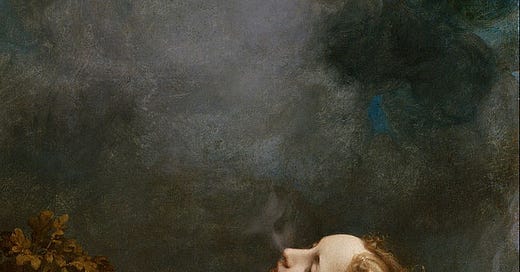




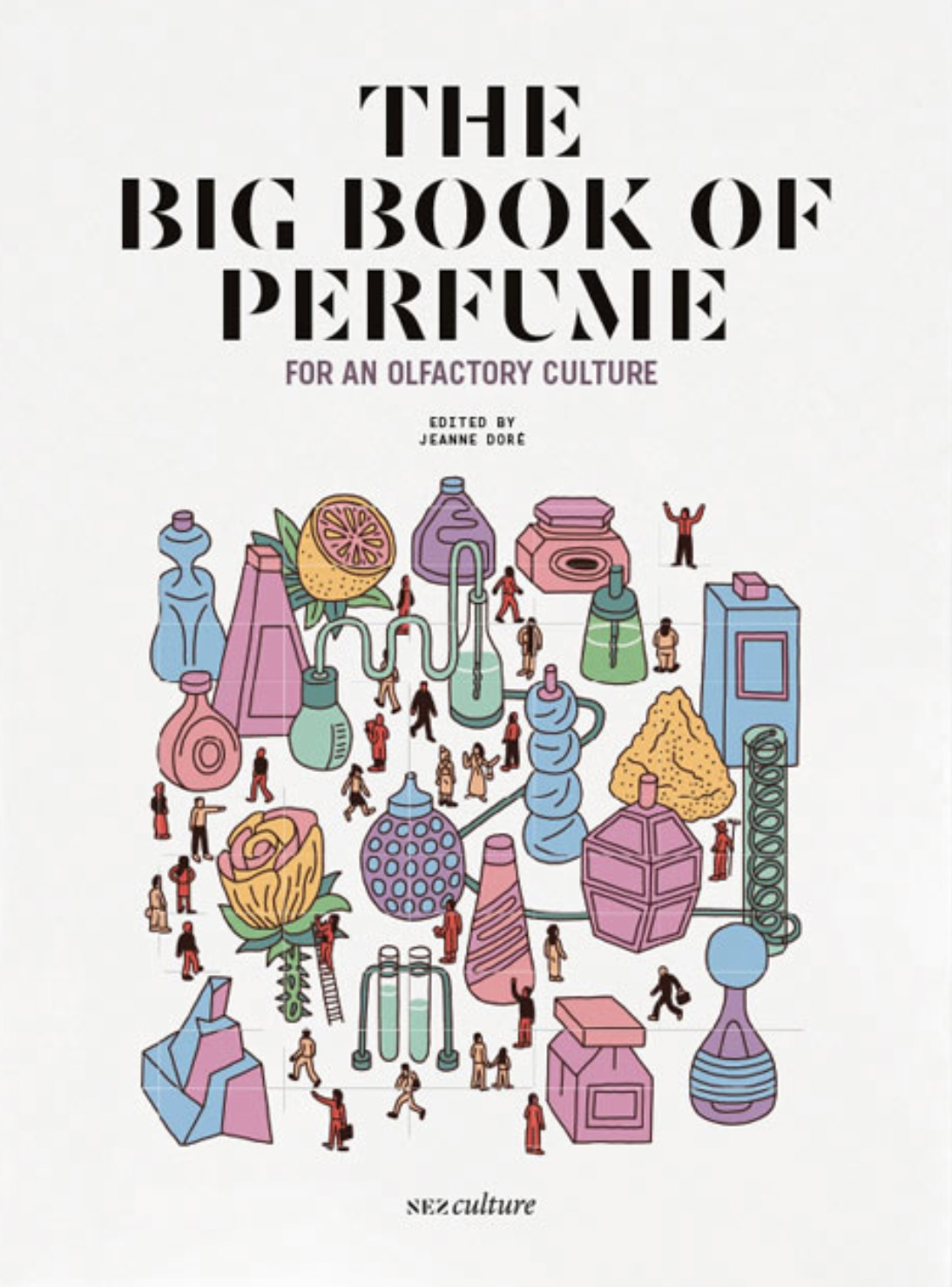
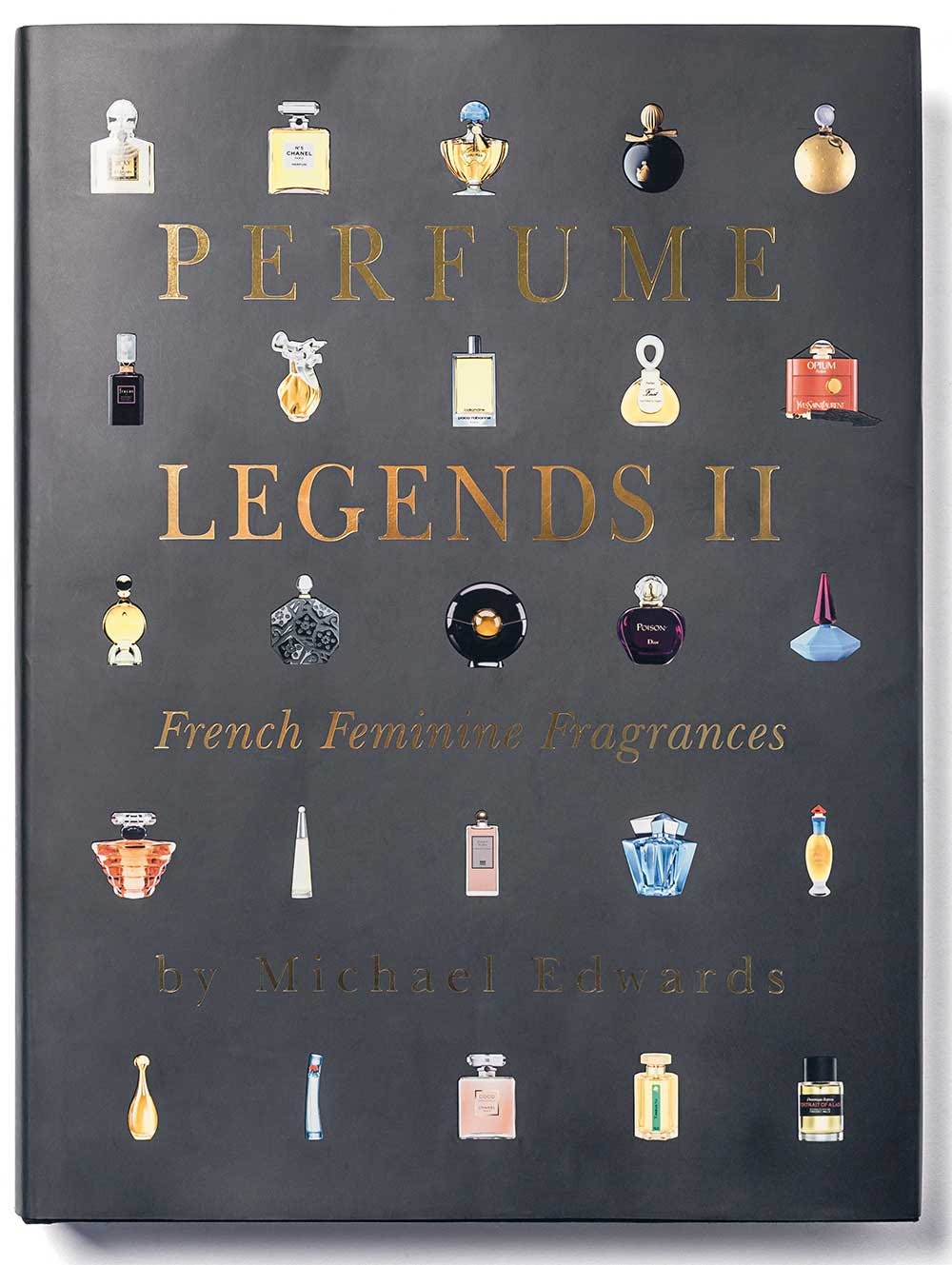
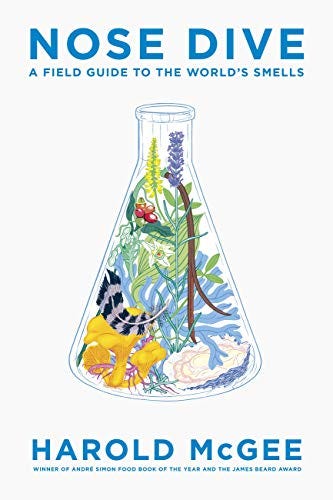
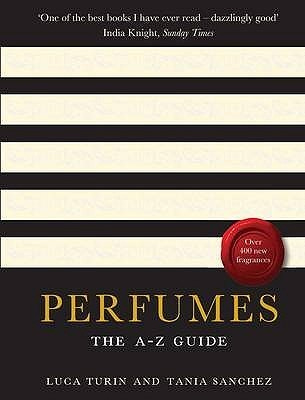
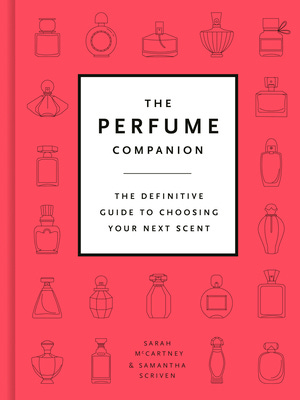
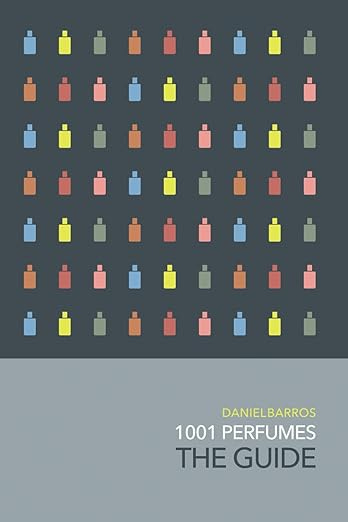
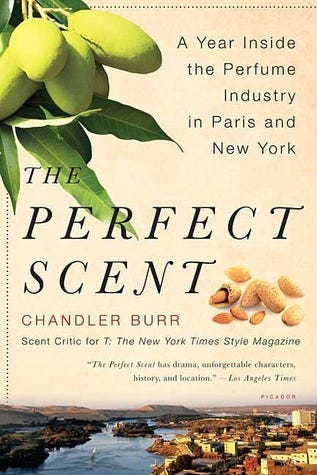
I could not have clicked on this notification faster. What a great morning read!
Wonderful read! It's really nice to have a bit of a reading list as I explore fragrance as a newbie to the world.